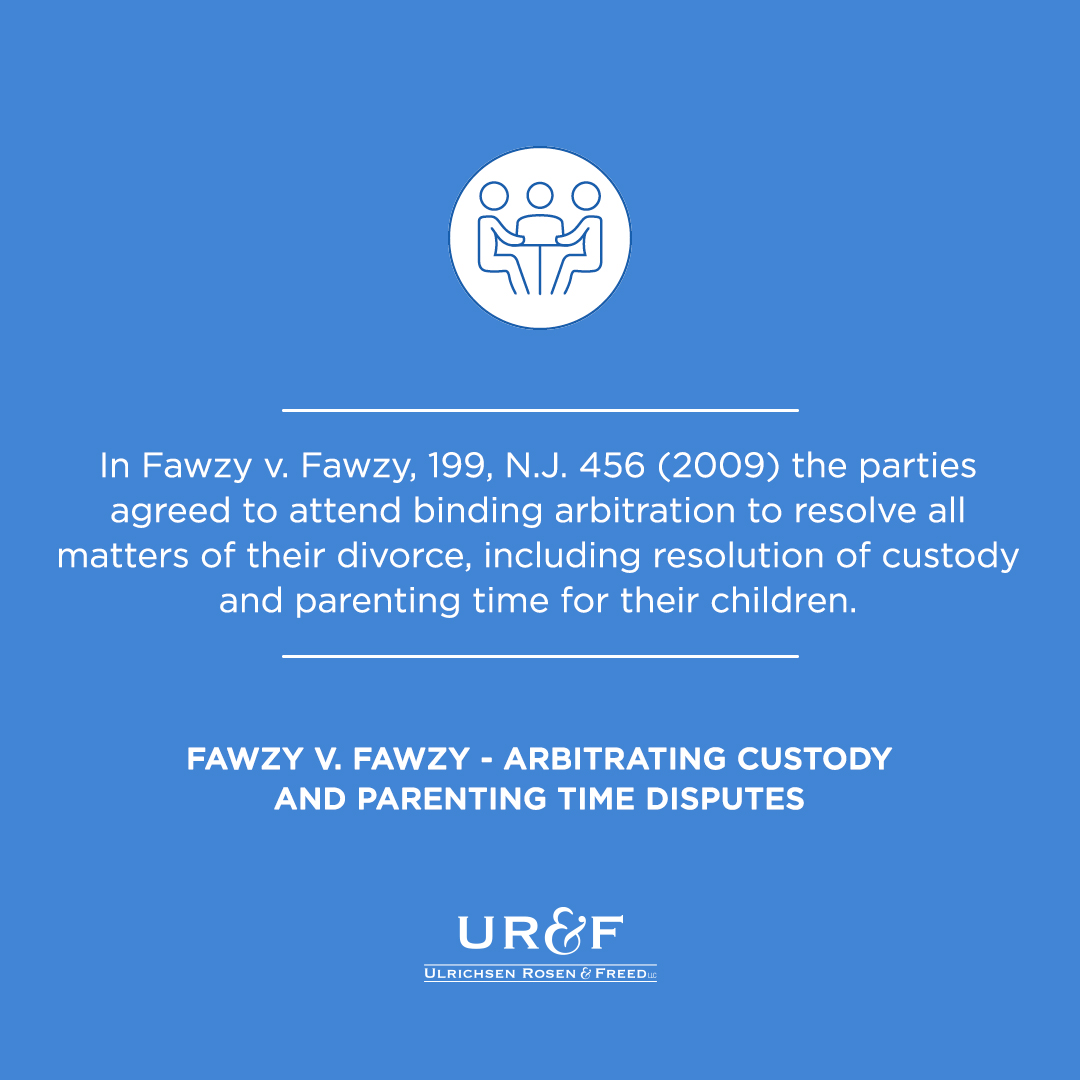Fawzy v. Fawzy – Arbitrating Custody and Parenting Time Disputes
In Fawzy v. Fawzy, 199, N.J. 456 (2009) the parties agreed to attend binding arbitration to resolve all matters of their divorce, including resolution of custody and parenting time for their children.
However, while the arbitration was in process Mr. Fawzy attempted to stop the arbitration as it related to the issue of custody and parenting time, arguing the issue of custody and parenting time could not be arbitrated and he was pressured into agreeing to arbitration. The trial court denied his application and allowed the arbitration to proceed, with the arbitrator issuing an award regarding custody and parenting time. On appeal, Mr. Fawzy argued it was unconstitutional for an arbitrator to make determination on custody and parenting time given the court’s “parens patriae” obligation to assure the best interests of children. Although the Appellate Division noted that Mr. Fawzy failed to establish the arbitration award would cause harm to the children, the Appellate Division held litigants cannot submit custody issues to final, binding, non-appealable arbitration and overturned the arbitration award.
Both parties filed petitions for certification to the New Jersey Supreme Court. Although the Supreme Court affirmed the decision of the Appellate Division overturning the arbitrator’s award in this matter, it did so for other reasons.
The Supreme Court determined parental autonomy includes the right to submit any family controversy, including custody and parenting time, to a decision maker of their choosing. Since arbitration by its very nature is a creature of contract, the Court provided guidance as to how parents may exercise this right and bind themselves to arbitrate a child-custody dispute.
First, at a minimum, an agreement to arbitrate must be in writing or recorded. Second, it must state in clear and unmistakable language that: (1) the parties understand their entitlement to judicial adjudication of their dispute and are willing to waive that right; (2) the parties are aware of the limited circumstances under which a challenge to the arbitration award may be advanced and agree to those limitations (the parties may also agree to a broader review than provided for by the Arbitration Act); (3) the parties have had sufficient time to consider the implications of their decision to arbitrate; and (4) the For questions regarding collaborative divorce or any other family law related issue,
Finally, the Supreme Court’s opinion also recognized the need for a detailed record to ensure if the family court needed to review or modify the arbitrator’s ruling, there would be sufficient evidence to examine. As a result, when parties agree to arbitrate custody and parenting time issues, (1) a record of all documentary evidence shall be kept; (2) all testimony shall be recorded verbatim; and (3) the arbitrator shall state in writing or otherwise record his or her findings of fact and conclusions of law with a focus on the best interests standard.
It is only upon such a record that an evaluation of the threat of harm to a child can take place without an entirely new trial. Any arbitration award regarding custody and parenting time that results from procedures other than those mandated by the Court will be subject to vacation upon motion.
For questions regarding custody and parenting time or arbitration please contact the attorneys of Ulrichsen Rosen & Freed LLC. Our firm is focused exclusively on the practice of family law and serves clients throughout New Jersey including clients residing in Mercer County, Somerset County, Hunterdon County, Burlington County and Middlesex County.


